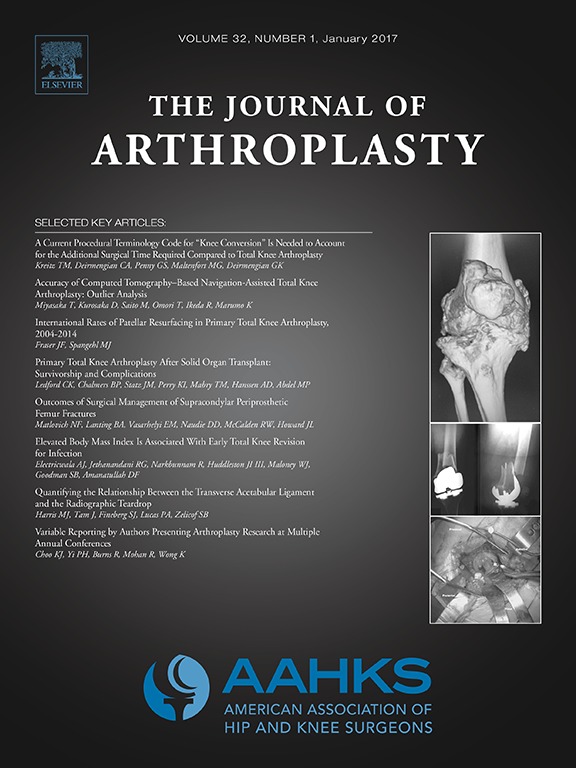
ARTHROPLASTY
Continuous infusion of bupivacaine following TKA does not improve morphine consumption
This report has been verified
by one or more authors of the
original publication.
J Arthroplasty. 2013 Mar;28(3):479-84. doi: 10.1016/j.arth.2012.07.016. Epub 2012 Nov 2
67 patients were randomized in this pilot study to evaluate the efficacy of a 48h continuous local infiltration of bupivacaine on reducing morphine consumption following total knee arthroplasty (TKA). Patients received either local infiltration of intra-articular bupivacaine (0.5% at 2 cc/h) or placebo (0.5% saline at 2 cc/h) and were assessed over the first 48 hours and at 1 year. Results revealed that there were no significant differences between both groups regarding morphine consumption, pain scores, or any of the other clinical outcome measures.
Unlock the full ACE Report
You have access to {0} free articles per month.Click below to unlock and view this {1}
Unlock NowCritical appraisals of the latest, high-impact randomized controlled trials and systematic reviews in orthopaedics
Access to OrthoEvidence podcast content, including collaborations with the Journal of Bone and Joint Surgery, interviews with internationally recognized surgeons, and roundtable discussions on orthopaedic news and topics
Subscription to The Pulse, a twice-weekly evidence-based newsletter designed to help you make better clinical decisions
Exclusive access to original content articles, including in-house systematic reviews, and articles on health research methods and hot orthopaedic topics
Or upgrade today and gain access to all OrthoEvidence content for just $1.99 per week.
Already have an account? Log in


Subscribe to "The Pulse"
Evidence-Based Orthopaedics direct to your inbox.
{0} of {1} free articles
Become an OrthoEvidence Premium Member. Expand your perspective with high-quality evidence.
Upgrade Now













































































